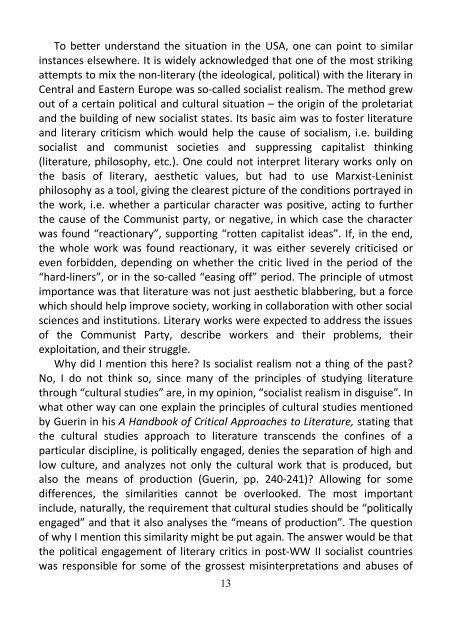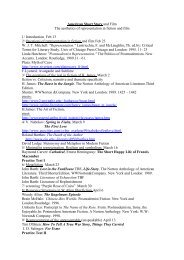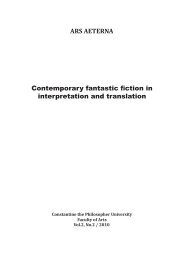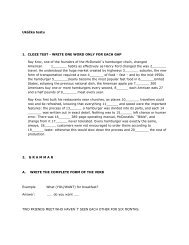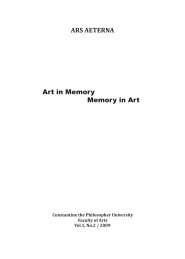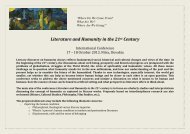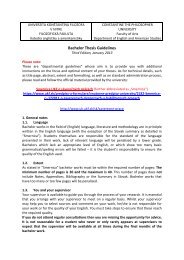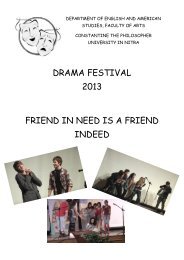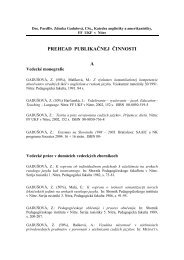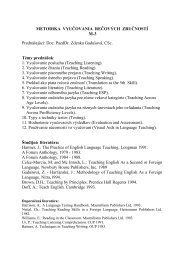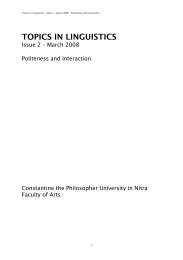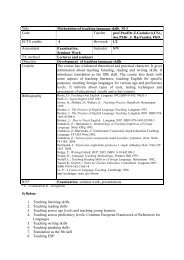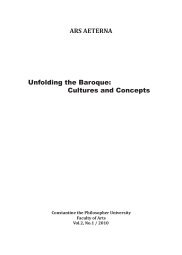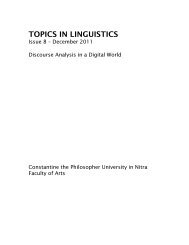Literature and Culture
Literature and Culture
Literature and Culture
You also want an ePaper? Increase the reach of your titles
YUMPU automatically turns print PDFs into web optimized ePapers that Google loves.
To better underst<strong>and</strong> the situation in the USA, one can point to similar<br />
instances elsewhere. It is widely acknowledged that one of the most striking<br />
attempts to mix the non-literary (the ideological, political) with the literary in<br />
Central <strong>and</strong> Eastern Europe was so-called socialist realism. The method grew<br />
out of a certain political <strong>and</strong> cultural situation – the origin of the proletariat<br />
<strong>and</strong> the building of new socialist states. Its basic aim was to foster literature<br />
<strong>and</strong> literary criticism which would help the cause of socialism, i.e. building<br />
socialist <strong>and</strong> communist societies <strong>and</strong> suppressing capitalist thinking<br />
(literature, philosophy, etc.). One could not interpret literary works only on<br />
the basis of literary, aesthetic values, but had to use Marxist-Leninist<br />
philosophy as a tool, giving the clearest picture of the conditions portrayed in<br />
the work, i.e. whether a particular character was positive, acting to further<br />
the cause of the Communist party, or negative, in which case the character<br />
was found “reactionary”, supporting “rotten capitalist ideas”. If, in the end,<br />
the whole work was found reactionary, it was either severely criticised or<br />
even forbidden, depending on whether the critic lived in the period of the<br />
“hard-liners”, or in the so-called “easing off” period. The principle of utmost<br />
importance was that literature was not just aesthetic blabbering, but a force<br />
which should help improve society, working in collaboration with other social<br />
sciences <strong>and</strong> institutions. Literary works were expected to address the issues<br />
of the Communist Party, describe workers <strong>and</strong> their problems, their<br />
exploitation, <strong>and</strong> their struggle.<br />
Why did I mention this here? Is socialist realism not a thing of the past?<br />
No, I do not think so, since many of the principles of studying literature<br />
through “cultural studies” are, in my opinion, “socialist realism in disguise”. In<br />
what other way can one explain the principles of cultural studies mentioned<br />
by Guerin in his A H<strong>and</strong>book of Critical Approaches to <strong>Literature</strong>, stating that<br />
the cultural studies approach to literature transcends the confines of a<br />
particular discipline, is politically engaged, denies the separation of high <strong>and</strong><br />
low culture, <strong>and</strong> analyzes not only the cultural work that is produced, but<br />
also the means of production (Guerin, pp. 240-241)? Allowing for some<br />
differences, the similarities cannot be overlooked. The most important<br />
include, naturally, the requirement that cultural studies should be “politically<br />
engaged” <strong>and</strong> that it also analyses the “means of production”. The question<br />
of why I mention this similarity might be put again. The answer would be that<br />
the political engagement of literary critics in post-WW II socialist countries<br />
was responsible for some of the grossest misinterpretations <strong>and</strong> abuses of<br />
13


